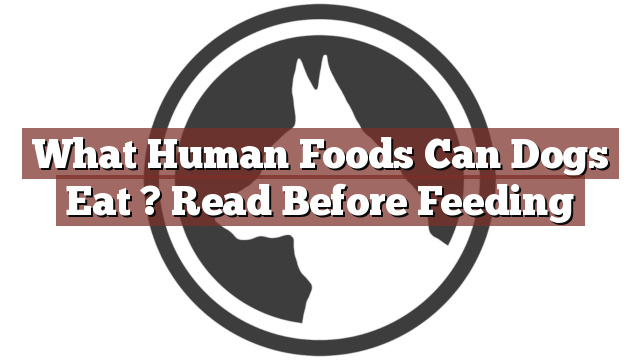Understanding Your Dog’s Dietary Needs
As a responsible pet owner, it is crucial to understand your dog’s dietary needs to ensure their overall health and well-being. While dogs are primarily carnivorous animals, they can also benefit from certain human foods in moderation. However, it is essential to know which human foods are safe for dogs and which ones can be harmful or even toxic to them.
What Human Foods Can Dogs Eat? Read Before Feeding
Many dog owners often wonder, "What human foods can dogs eat?" It is important to note that not all human foods are safe for dogs, as their digestive systems are different from ours. However, there are some human foods that are safe and even beneficial for your furry friend. Let’s take a look at a few examples:
-
Can dogs eat apples? Yes, dogs can eat apples, but it is crucial to remove the seeds and core, as these parts contain cyanide, which can be harmful to dogs.
-
Can dogs eat carrots? Yes, dogs can eat carrots. Carrots are an excellent source of vitamins and fiber for your canine companion.
-
Can dogs eat peanut butter? Yes, dogs can eat peanut butter (without xylitol). Peanut butter is a tasty treat for dogs and can also be used as a tool for training or hiding medication.
It is important to remember that while these human foods are generally safe for dogs, they should always be given in moderation and as part of a balanced diet.
Pros and Cons of Feeding Human Foods to Dogs
Feeding your dog certain human foods can have both advantages and disadvantages. Let’s take a closer look at the pros and cons:
Pros:
-
Nutritional Benefits: Some human foods, such as lean meats, fruits, and vegetables, can provide additional nutrients to your dog’s diet.
-
Variety: Adding some human foods to your dog’s meals can add variety and make their diet more interesting.
Cons:
-
Digestive Upset: Certain human foods, such as onions, garlic, chocolate, and caffeine, can be toxic to dogs and may cause digestive upset or even more severe health issues.
-
Imbalance: Feeding too many human foods without proper guidance can lead to an imbalanced diet, lacking essential nutrients that dogs need.
-
Weight Gain: Some human foods, like high-fat snacks or sugary treats, can contribute to weight gain and obesity in dogs.
Conclusion: Make Informed Choices to Ensure Your Dog’s Health
While it is tempting to share our meals with our furry companions, it is crucial to make informed choices about what human foods to feed them. Always consult with your veterinarian before introducing new foods into your dog’s diet, especially if you are unsure about their safety. Remember that a balanced and nutritious diet formulated specifically for dogs is the best way to ensure their overall health and well-being. By understanding your dog’s dietary needs and making responsible choices, you can keep your furry friend happy, healthy, and safe.
Thank you for taking the time to read through our exploration of [page_title]. As every dog lover knows, our furry friends have unique dietary needs and responses, often varying from one canine to another. This is why it's paramount to approach any changes in their diet with caution and knowledge.
Before introducing any new treats or making alterations to your dog's diet based on our insights, it's crucial to consult with a veterinarian about [page_title]. Their expertise ensures that the choices you make are well-suited to your particular pet's health and well-being.
Even seemingly harmless foods can sometimes lead to allergic reactions or digestive issues, which is why monitoring your dog after introducing any new food item is essential.
The content provided here on [page_title] is crafted with care, thorough research, and a genuine love for dogs. Nevertheless, it serves as a general guideline and should not be considered a substitute for professional veterinary advice.
Always prioritize the expert insights of your veterinarian, and remember that the health and happiness of your furry companion come first.
May your journey with your pet continue to be filled with joy, love, and safe culinary adventures. Happy reading, and even happier snacking for your canine friend!

